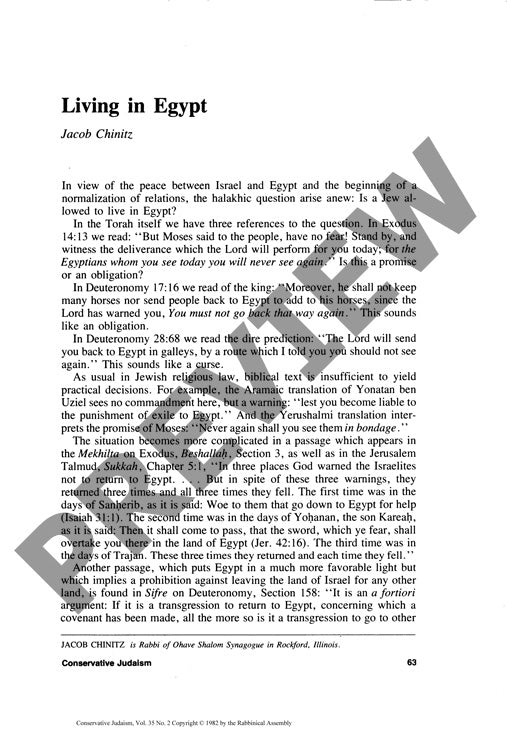Living in Egypt
Couldn't load pickup availability
For centuries, Jewish communities have resided in Egypt despite biblical prohibitions from Exodus and Deuteronomy seemingly forbidding such settlement - a tension that gained renewed relevance following the 1979 Israeli-Egyptian peace treaty. Through analysis of traditional Jewish legal methodology and biblical sources, ten distinct halakhic interpretations emerge explaining how major religious authorities, including Saadia Gaon, Maimonides, and Radbaz, justified Jewish presence in Egypt while themselves living there. These interpretations range from restricting the prohibition to Israeli kings, establishing temporal limitations based on Egyptian moral conditions, and creating exceptions for business, study, or situations of compulsion. The evolution of these rulings reveals how de facto circumstances substantially shape halakhic decisions alongside formal legal principles, with geographical and political realities posing unique challenges to strict religious interpretation. While traditional sources maintain the basic prohibition, the flexibility of halakhic reasoning has historically created space for Jewish residence in Egypt under various circumstances, though contemporary applications continue to require careful rabbinical consideration.

More Information
-
Physical Description
-
Publication Information
Published 1982
ISBN
-
Publication Credits
Jacob Chinitz

